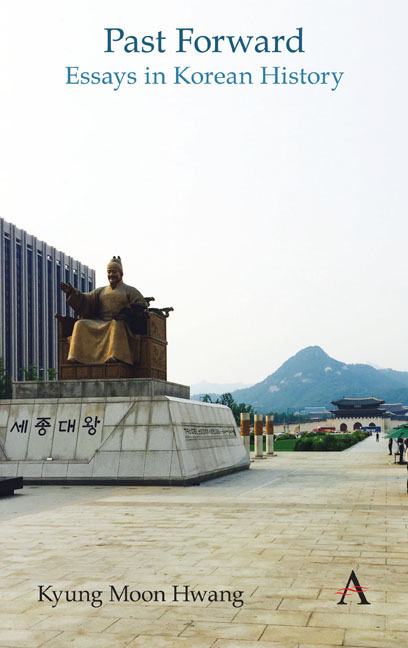Book contents
- Frontmatter
- Contents
- List of Figures
- Foreword
- Chronologies of Korean History
- Themes
- Acknowledgments
- Note on Romanization and Spelling
- Part I Circulating History
- Part II Durable Traditions
- Part III Ancient Remains
- Part IV Dynastic Depths
- Part V Modern Origins
- Part VI Challenges of Nationhood
- 30 Korea's Past in Light of Brexit
- 31 Openness and Exclusion
- 32 The North Korean View of History
- 33 Another Way to View National Division
- 34 The First National Assembly Elections
- 35 Who Started the Korean War?
- 36 Textbooks and Competing Nationalist Histories
- 37 The Complexities of Memorial Day
- 38 Adoption's Spotlight on Korean History
- 39 Questioning Monuments
- 40 Taking Ownership of the Past
- Part VII History Makers
- Part VIII External Presences
- Part IX Trials of Modernization
- Part X Gripped by the Past
- Index
32 - The North Korean View of History
from Part VI - Challenges of Nationhood
- Frontmatter
- Contents
- List of Figures
- Foreword
- Chronologies of Korean History
- Themes
- Acknowledgments
- Note on Romanization and Spelling
- Part I Circulating History
- Part II Durable Traditions
- Part III Ancient Remains
- Part IV Dynastic Depths
- Part V Modern Origins
- Part VI Challenges of Nationhood
- 30 Korea's Past in Light of Brexit
- 31 Openness and Exclusion
- 32 The North Korean View of History
- 33 Another Way to View National Division
- 34 The First National Assembly Elections
- 35 Who Started the Korean War?
- 36 Textbooks and Competing Nationalist Histories
- 37 The Complexities of Memorial Day
- 38 Adoption's Spotlight on Korean History
- 39 Questioning Monuments
- 40 Taking Ownership of the Past
- Part VII History Makers
- Part VIII External Presences
- Part IX Trials of Modernization
- Part X Gripped by the Past
- Index
Summary
In North Korea, history shapes just about everything. History refers here not only to the past, but also to people's historical views, or their interpretation of historical events and patterns. The orthodox North Korean perspective, the only one permitted, views most of Korean history as a series of struggles by the people. Internally, they fought cruel exploitation by the hereditary ruling elites and capitalists. The masses, including slaves, worked in the fields or engaged in other labor, but the fruits of their efforts were mostly stolen by the unproductive aristocrats, landlords and merchants. Government officials are also depicted as having squeezed the people by collecting burdensome taxes while offering few benefits in return. Skilled mostly in abstract and useless learning, such elites were too preoccupied with political intrigue to care for regular people or even to protect them from foreign invasions.
The magnitude of these external dangers is usually portrayed as threatening the very existence of the Korean nation. From the continent came attacks by the Chinese and by people of the northern Asian areas, stretching from Mongolia to Manchuria, who periodically controlled China. In the seventh century, the Chinese Sui dynasty tried to obliterate the ancient kingdom of Goguryeo, and the Tang dynasty tried to grab the Korean peninsula from the Silla kingdom. In the Goryeo era of Korean history, various north Asian groups launched attacks, but the biggest force was the Mongols, who successfully conquered the country and ruled it indirectly for a century. Then in the Joseon era came the devastating Japanese invasions of the late sixteenth century, followed quickly by the Manchu invasions, and then the Japanese again in the early twentieth century.
To North Koreans, throughout this long experience of suffering at the hands of both internal and external forces, the brave and virtuous common people, armed with their unshakable sense of patriotism and propriety, persisted and often resisted. Furthermore, they were sometimes led by great figures who rallied the people and guided them toward actions that saved the country.
This role of the great salvational hero is what makes the North Korean view of history so important to understanding North Korea.
- Type
- Chapter
- Information
- Past ForwardEssays in Korean History, pp. 93 - 94Publisher: Anthem PressPrint publication year: 2019



